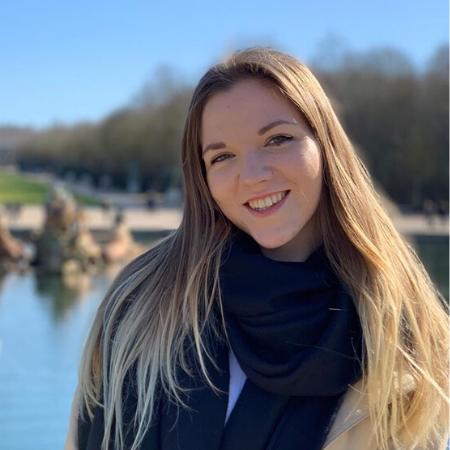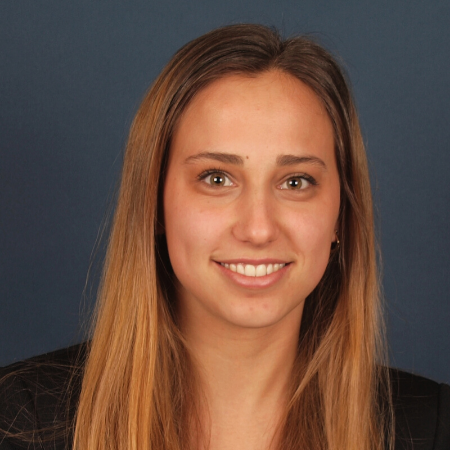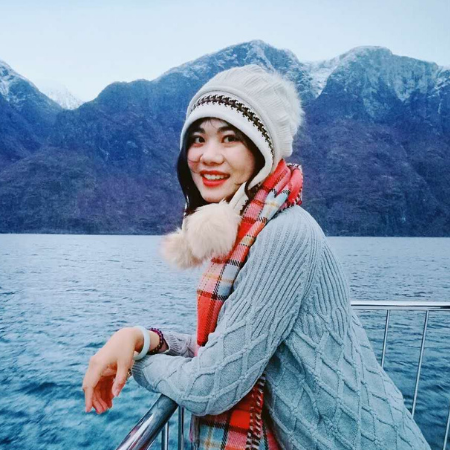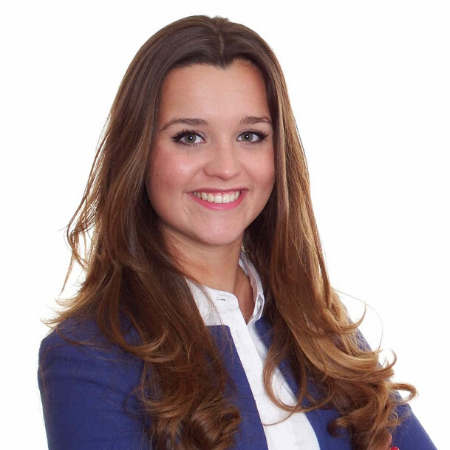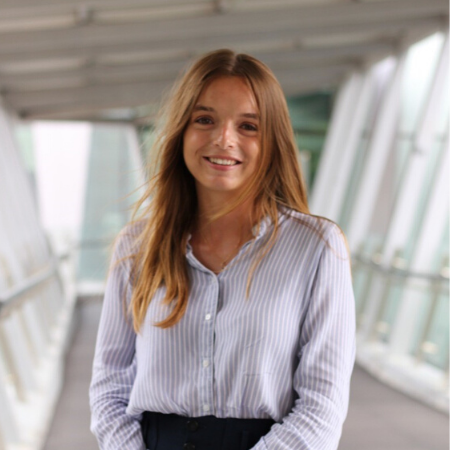HEC Students’ deep dive into inclusive business issues!
Master 2 students worked between 4 and 12 weeks on inclusive business projects of the L’Accelerateur ESS Ile-de-France. It was a unique experience for them to understand how committed companies can link a business objective with a social objective in a sustainable way!
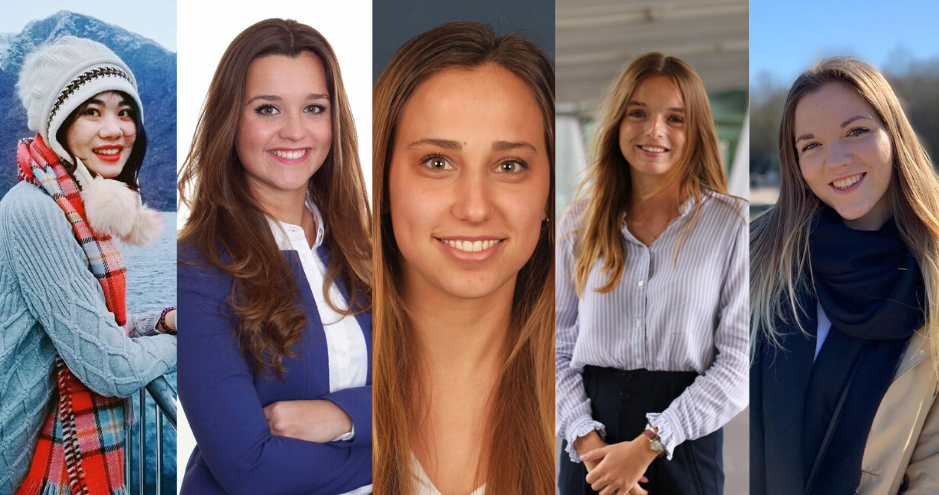
L’Accélérateur ESS is a two-year support program, for inclusive & scale up companies. It was launched in 2018 and is mostly funded by the Région Ile-de-France.
As part of a consortium, HEC Paris provided a portion of the support for the companies that won Promotion 1, and is in charge of supporting Promotion 2. This second promotion focuses on the sectors of disability and social economy.
For the first time, about twenty Master 2 students decided to carry out their "Business Projects", a 3-month consultancy mission, in these inclusive companies. There are twelve business projects in total. It was a unique experience for them to understand how committed companies can link a business objective with a social objective in a sustainable way!
Here is the feedback on these few weeks of integration and cooperation between students and entrepreneurs. All the students were asked to give their testimonials. It is probably a coincidence that you see an over-representation of women in this article ;-)
Karen NOLD, 23 years old, H2020, CEMS
Karen worked for Rezosocial, a digital service company that helps people in situations of exclusion bounce back into sustainable employment.
I started working for RézoSocial at the end of January and completed my mission at the beginning of April, a little more than 2 months with the company. We had the choice in my program (CEMS) to work either for partners of the program (large companies) or for non-partners who had made their needs known. It seemed relevant to me to work for non-partners who were mostly small companies with development missions. It was also a way to be given more more responsibilities. I chose RézoSocial because I wanted to work for a small structure, something I had never done before, and because I wanted to learn more about inclusive enterprises. The sector of activity (IT) didn't interest me particularly but I learned to like it as the mission progressed, especially by working with the employees.
I was associated with Jeanne. We were two French students from the CEMS, at the Grande Ecole.
What was your methodology?
We used a methodology developed by Professor Markuz Venzin whom I was lucky enough to have at La Bocconi during my exchange as part of the CEMS program. He developed a structure to analyze corporate strategies along different axes. We based ourselves on this framework and adapted it to the needs of RézoSocial, namely: a diversification of activities in the field of outsourcing in the Ile de France region. We constituted two large work blocks which were the two phases of the project: an analysis section with a market study, opportunities in parallel with an analysis of the company and its resources, then a definition section with the development of the implementation plan, commercial action and pricing of the opportunities found in phase 1 and chosen by the company at the intermediate restitution.
How did your exchanges take place?
As soon as we could, we worked on the company's premises each Wednesday for a full day . The current crisis unfortunately prevented us from continuing on-site for the second part of the project. We had several meetings, one at the start, one at the presentation of our methodology, one at the intermediate restitution and one at the final restitution, with between each of these 4 "big meetings" other small meetings organized when needed to check progress, ask questions etc. We were fortunate to be in a company where the employees were very available, where we could go and ask questions and exchange with employees very easily.
What form did your work take?
During our presentation, we agreed with the company on a list of deliverables:
PART 1: Mapping of competitors; detailed list of market opportunities as well as their characteristics and segmentation matrix; SWOT of the company RézoSocial.
PART 2: For each opportunity defined and chosen by RézoSocial at the end of phase 1:
- "Check-list", drawn up according to our own model, which includes the different implementation elements for the offer (in terms of knowledge, HR, organization, tools, systems, accreditations, partnerships, etc...)
- Commercial action plan, drawn up according to our own model
- Pricing, based on our own model using average competitor prices and recommendations, as well as market sizing.
Did they consider your proposals?
We had proposed 8 market opportunities in phase 1, 4 were selected. The study is now under way to find out which of the 4 will be pursued. I think that at least 2 will be implemented. According to the feedback we received, RézoSocial was very satisfied with our work and intends to explore the opportunities we defined with them.
What surprised you the most when you discovered the company?
Several things:
- That everyone knows each other! I only worked in large companies during my internships (Vinci and Danone) and only knew my team and the teams I was in regular contact with. At RézoSocial, which has about thirty employees, everyone knows and talks to each other. 1/3 of the employees are socially integrated and we felt no differentiation, the atmosphere was very pleasant and family oriented.
- The management team is driven by passion! There are no other words to define their state of mind, they are committed to their jobs, find meaning that goes beyond their daily actions and know how to share this passion that drives them. It was very motivating and inspiring!
Have you ever worked in this industry? for small or medium-sized businesses? for inclusive companies?
Never in IT and never in an insertion company. In terms of social commitment, I am familiar with it from my experience at Danone, which is a very inclusive and committed company.
Do you plan to work in this type of company again?
I would indeed see myself working in this kind of company in the future. For me, a company's commitment and social responsibility are key criteria because I would like to find meaning in the company's mission and in my daily work.
What did you learn from this experience?
From a rather personal point of view, I learned to be more assertive, to have confidence in my work, to know how to better present my ideas and to be convincing. I also learned a lot about the social economy environment and especially about the inclusive companies in France, as well as the outsourcing sector, which is a subject that cuts across many current issues (especially environmental or data security issues for example). It was the first time that Jeanne and I had carried out a ”consultancy mission” and our tutors really helped us to assert our position as consultants, which I think is a great plus for my professional future.
From a team point of view, I already knew Jeanne with whom I had gone on a university exchange in Master 1, so we were already used to working together, but it was a first in a professional setting. Everything went very well, we realized the importance (and the luck) of the complementarity of the teams (I am stronger in organization and Jeanne has more in synthesis for example).
Has this changed your vision?
It has reinforced my decision to favour committed companies on the one hand. On the other hand, I think that it allowed me to demystify what Social economy is. I had the opportunity during my schooling to talk about it several times, to meet actors but always from afar. With this very utopian, idealistic aspect, we don't really understand how these companies are sustainable (especially from a financial point of view). Now, I see that this translates into concrete actions, with companies that have learned to link a business objective with a social objective, with committed people who believe in their actions.
What are your next professional projects?
I'm going back to Danone next Monday! I received the offer at the beginning of the year and cannot wait to go back. I will be working in the HR team for a position in ‘transformation’
Céline FAURE, 25 years old, H2020
Céline worked at Ecodair, an inclusive computer equipment reconditioning company.
The project lasted 10 weeks. When we chose our Business Project, we had the choice between about thirty companies, most of them CAC40, and a few that had a social and environmental project and were part of the HEC Accelerator. When I saw that there was an inclusive company for disabled people whose activity was to recondition computers, and that the affiliated project was also a marketing study (a task I learned well during my internships), I didn't hesitate for a second, and that company was Ecodair. Even if I had to give my time for free, I really preferred to do it for a small company committed to people and the environment!
Who were you associated with?
I worked with Caroline Hypius on this project, a very good friend of mine who did internships in marketing and consulting. I was more focused on marketing and communication, so we had skills that were both complementary and in line with the needs of the project.
What was your methodology?
The first step was of course to define a 10-week schedule to give visibility to the company.
We then did two full days of immersion in the company: we visited the entire production and reconditioning process thanks to Ecodair's highly motivated employees. We also observed customers coming to the Ecodair Boutique, and spent time calling and interviewing Ecodair employees and customers.
Our work was to clarify the official line, positioning and new signature launched a few months ago, on the commercial roll-out of the company. We then carried out an in-depth benchmarking of the sector and their market positioning (their values, their tone...) to help Ecodair position itself in relation to them, and this mid-term study was presented to the company to align with the final recommendations.
The final step was to draft the final recommendations by defining and detailing each key target for Ecodair with the 4 Ps of marketing each time, while recommending an overall brand positioning.
What types of exchanges have you had?
We had a total of 4-5 meetings, always face-to-face. We were also in constant contact by email and telephone.
What are the deliverables?
There are 2 deliverables: an in-depth benchmark of the different players in the reconditioning process and their official line/positioning, which makes more than 130 slides. And a deck of 30 slides of final recommendations with, for each of Ecodair's key targets, the marketing strategy to adopt, as well as a recommendation on the general discourse to adopt.
Did they consider your proposals?
Absolutely. We were very well integrated into the process of thinking about the study and our views were valued on the one hand by our external vision of Ecodair which is always useful for a company, and on the other hand because we represent a category of ecologically aware buyers who could buy refurbished equipment We really co-constructed this study, a mix of our proposals and the feedback from Ecodair and they were always available to guide us.
Do you think they are implementing new actions as a result of your work?
Our recommendations focused more on the discourse and positioning in terms of targets for Ecodair, i.e. long-term actions that take time. However, I have no doubt that some of our recommendations are already being worked on internally to study their feasibility.
What surprised you the most when you first discovered the company?
I was very surprised to find out how a reconditioning plant works. It was very new to me. What struck me most was the specificity of the support provided to disabled people in the company as well as the extremely broad spectrum of disabilities. We often think of the physically disabled because of the symbol that we see everywhere, but we know much less about the various mental disabilities, which are sometimes less visible, but which make integration into the company just as complex.
Have you ever worked in this sector? for small or medium sized businesses? for inclusive businesses?
I did a 6-month civic service at Yann Arthus-Bertrand's GoodPlanet Foundation as a mediator on environmental issues.
Do you plan to work in this type of company again?
For now, I'm going to work for large companies in order to be well trained in the job I want to do, but it's obvious to me that I'll end up working in a company committed to the environment and people.
What have you learned from this experience?
This experience opened my eyes to disability, to reconditioned equipment (which I would not have tended to buy before but which I am convinced of now), and to the functioning and challenges of Adapted Enterprises, ESATs and Integration Enterprises, business models that are too little known but which allow people who are far from employment to feel useful and integrated into society.
What are your next professional projects?
I would like to learn about brand positioning and communication, and that is why I am currently looking to join a communication agency.
Yijun LIU, HEC Paris - Master in Managerial and Financial Economics
Yijun worked at En 10 Saveurs, the "restaurant that adapts", a luminous place of sharing, meeting and inclusion.
I worked in the company for about 10 weeks.
I have experience in providing consulting services for restaurants. Besides, this restaurant helps the handicapped and I felt it will be very meaningful to take this project. Furthermore, I want to sharpen my skills in consulting and I think it will be a good opportunity to work on this project.
Who were you associated with? What were your respective backgrounds?
I worked with Charbel and Baudouin. Charbel has experience in consulting, and Baudouin has experience in IB.
What was your methodology?
We analyzed their business and decide to work on the project from operation and marketing perspectives.
During the project, we conduct the operation analysis, market study, competitor analysis. Besides, we also reach out to some potential partners for further marketing and PR needs.
How many meetings did you have? What kind of exchanges? Visits, meeting, other?
We had meetings once a week, so there were 10 meetings in total.
During the meetings, we briefed our updates and solutions and discussed them with our clients. , We also continued to dig out their further needs to provide further strategies and talked with consumers who come to the restaurant to eat and visit other restaurants nearby, to have deeper understanding of customer needs.
What are the Deliverables?
Our deliverables are PPT and report. PPT provides information in detail with the picture to explain our ideas. The report provides brief explanation for our strategies.
Did they take into account your proposals? Which ones?
Yes, they did.,for example, they begin to change the environment of the restaurant according to our suggestions. They also actively discuss with the potential partners whom we connect for them.
Do you think they are implementing new actions as a result of your work?
Due to the confinement, it is hard to measure the results of this project. However, they have expressed their appreciation for our work and decide to launch new actions based on our suggestions.
What surprised you the most when you discovered the company?
Previously I never thought of the possibility that the handicapped can still work and earn money. From their experience, I saw this possibility and was quite moved by such implementation.
Have you ever worked in this sector of activity? for small or medium sized companies? for inclusive companies?
I have worked in a start-up company in Singapore which provides the consulting service for restaurants. Therefore, I think my previous experience gave me many insights and helped for this project as well.
Do you plan to work in this type of company again?
If there are some opportunities, I'd like to work in this type of company again.
What did you gain from this experience?
I begin to think more logically thanks to the help of Marion-Emi ALIX and Ai Ting GOH. They gave me very precious suggestions to improve my results and help to provide better service for the company.
Has it changed your view?
Yes, I am more interested in working in NGO now.
What are your next professional projects?
I am going to start an internship during the summer or for the second half of the year. I believe there will be many interesting projects involved.
Amélie Meurer, X-HEC Data Science for Business
Amélie worked at Cèdre, an inclusive company specializing in the recycling of corporate waste in the Ile-de-France region.
I worked for Cèdre for 2 months, from End January to End March, for 4 days a week, in the frame of the Business Project in my major “Data science for Business”.
I chose this company for its purpose: Cèdre recycles business wastes while employing mostly disabled people.
Who were you associated with?
I was working alone on this project. I am an HEC Paris student Grande Ecole and I did the HEC-Polytechnique major in Data science for business. Thanks to this degree I have both an understanding in Business and Data.
What was your methodology?
My purpose was to make recommendations about the Customer Journey from Prospect to Client. I wanted to provide an overview of what happened in the previous years and what could be improved to increase the transformation rate.
I explored the whole CRM Data Base to understand what the current status was and what could be improved.
I used my coding skills to deep dive in the database and my business understand to provide sound recommendations to non-technical stakeholders.
How many meetings did you have? What kind of exchanges? Visits, meeting, other ?
I had the opportunity to have several meetings with the Cèdre team. My personal contact was the CEO himself, Jérôme Boillot, who was very invested and interested in this project. We called each other every two weeks so that I could present my findings and he could provide me his feedback and questions for me to solve. Thanks to this approach, I was trying to answer the most pressing questions of the company.
What are the Deliverables?
First of all, I delivered a deck with my recommendations and findings in the database. But since I want this work to be reproduced in the future, I am currently working at providing a clean code to be able to redo this analysis.
Did they consider your proposals?
I do hope and believe that Cèdre is going to take my proposals into account.
First, it was the first time they had access to a complete overview of their CRM Data. Thanks to this they had the full picture of what happened in the past.
Second, I uncovered many ways where their CRM could be better used to track the status of their prospect.
Finally, I found out some actions that commercials could do to get a better transformation rate.
Do you think they are implementing new actions as a result of your work?
Indeed, I believe they will use even better their CRM tool !
What surprised you the most when you discovered the company?
I was unfortunately working on my own, remotely, so I couldn't really get familiar with the day to day life of the company - which was a pity.
Anyway, on my first day at Cèdre, I had the chance to spend the whole day with Jérome, the CEO who was extremely kind to explain me the particularities to work with disable people. As he explained to me, there are less and less physically disabled people (because for instance with Down syndrome, women can abort) and proportionally more people who are mentally sick. I feel the public is not very aware of mental health (still a big lack of representation in the media) and disabled people are stigmatized (considered as dangerous or a burden). This clearly doesn’t help for a better integration in our society.
I also had a glimpse of the fiscal helps from the French government for the “entreprise adaptée”. Finally, he explained to me how the culture between the recycling sites of Cèdre differed : depending on the location, there is not the same type of population and therefore, not the same type of disabilities and social problems. On this matter, I was quite surprised how similar “entreprises adaptées” are to “normal companies”.
Have you ever worked in this sector of activity? for small or medium sized companies? for inclusive companies?
I never worked for a company who employed a significant share of disable people. But I had the opportunity to employ my skills for the "greater good" already : I have been working as a volunteer at the UN, in a Big data lab in Kampala, Uganda. The purpose of this lab was to help to the implementation of the Sustainable Development Goals defined by the UN with Big Data solutions.
Do you plan to work in this type of company again?
For now, I don't want a full-time job in this type for company, because I want to increase my competencies in Data Science (and therefore I need a company that is quite mature in terms of data). But I do hope to be able to help Cèdre in the future, on a voluntary basis !
What did you gain from this experience?
Thanks to the support of this company, I had a first step into the world of the entreprise adaptées, and I was very proud to help on this marvelous project, important both socially and environmentally!
Has it changed your view?
Indeed, I realized you can absolutely have a good Business Plan, profitable company and still work for inspiring and important cause !
What are your next professional projects?
My wish is to work as a Consultant Data Scientist, and to apply and improve both my business and data science skills !
Morgan Le Jossic, H2020
Morgane worked at Deafi, remote customer relationship company for deaf and hard of hearing people!
I worked for Deafi from January until April. I wanted to discover the social and solidarity economy and at the same time a new size of company. I had never worked for a startup before. I particularly liked the business segment of Deafi, the remote customer relationship management for deaf and hard of hearing people, because I feel like these people are not enough represented in the business world. I have a particular closeness with this handicap because one of my aunts has been deaf since her birth.
Who were you associated with?
I was working with Alix Fruchet and Daniel Klippfeld, two students from my CEMs major in HEC. The CEMS is a global alliance of 31 universities, delivering its own diploma, on top of the one from our home university and allowing students to study one term abroad. Alix is a student from my HEC 2020 promotion who also happens to be my best-friend. We did the same « classe prépa » in Rennes and we entered the Grande Ecole Program in HEC. Daniel’s home university is the Wirthschaftsuniversität of Vienna and he chose HEC as his abroad school destination.
What was your methodology?
We were working on the growing strategies for the company. Firstly, we brainstormed and then chose the best three strategies. We then focused each on one of them, developing it from concept to actionable levers.
How many meetings did you have?
We had three major meetings with Deafi’s team, for the beginning, the middle and the end of the project. In our team, we gathered either face to face or virtually each Wednesday.
What are the Deliverables?
The Deliverable was a detailed powerpoint presentation, presenting the 3 strategical axes.
Did they take into account your proposals? Which ones?
They took into account our three proposals, even though; one of them which was about geographical expansion is more long-term for them.
Do you think they are implementing new actions as a result of your work?
Once the covid-19 situation will be stabilized, they said they would implement at least two of our solutions, one of them is about digital innovation, the other is a new HR recruitment strategy.
What surprised you the most when you discovered the company?
I think it is the spirit of Deafi. Most of the workers are deaf people, communicating with each other with the sign language. Before entering the office, I thought that it might be a bit hard for us to make ourselves understandable, but it was totally fluid and we had a very warm welcome.
Have you ever worked in this sector of activity? for small or medium sized companies? for inclusive companies?
It was my first time working in a startup. However, I already had the opportunity to discover the social and solidarity sector by joining the association Alteractions. This is an association that gathers students from French top schools, in engineering, business, law and political science in teams to conduct a consulting mission for actors of social and solidarity economy.
Do you plan to work in this type of company again?
I think I feel more comfortable in bigger companies. However, I am still open to any challenging opportunities. :)
What did you gain from this experience?
This experience has enabled me to have a way broader knowledge on disabilities and the wide variety of challenges for hiring disabled workers. Thanks to Deafi, I also had the opportunity to discover a « family spirit » in a human-sized company. Finally, this project has given me an on-field experience of a consultant position.
Has it changed your view?
I think it has changed my view on the current implemented policies to hire more disabled people and enable them to fulfill their professional aspirations. More opportunities and tools are offered to company to comply with the law, but they may lack information.
What are your next professional projects?
I am graduating from HEC in June 2020 and I am therefore looking for jobs or new experiences in consulting or marketing.
